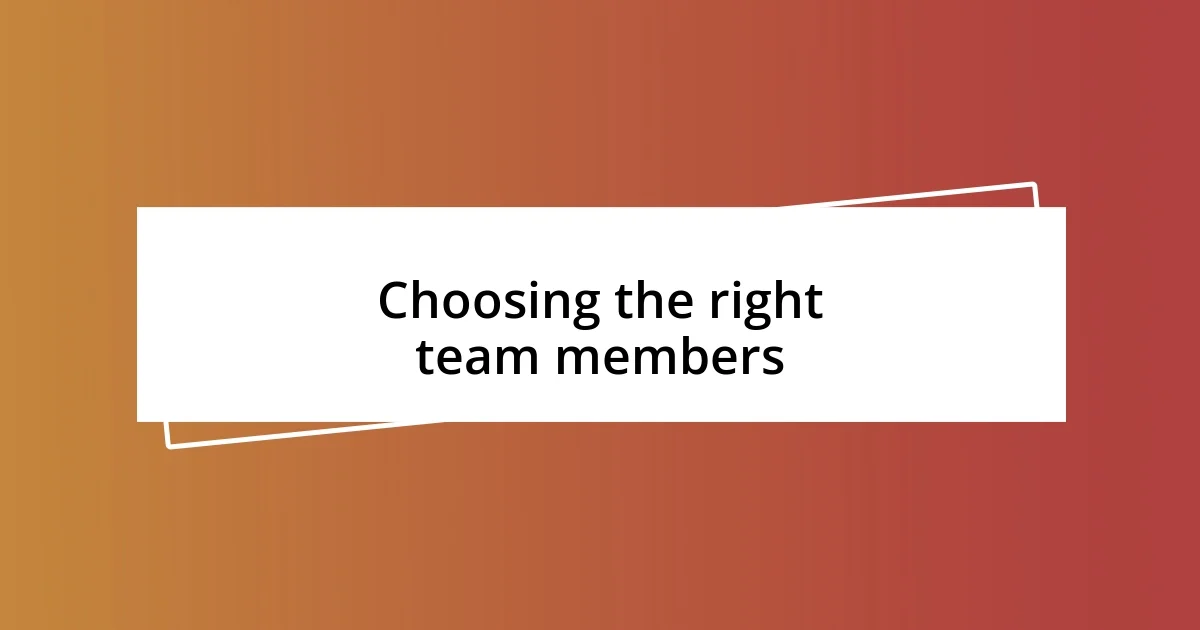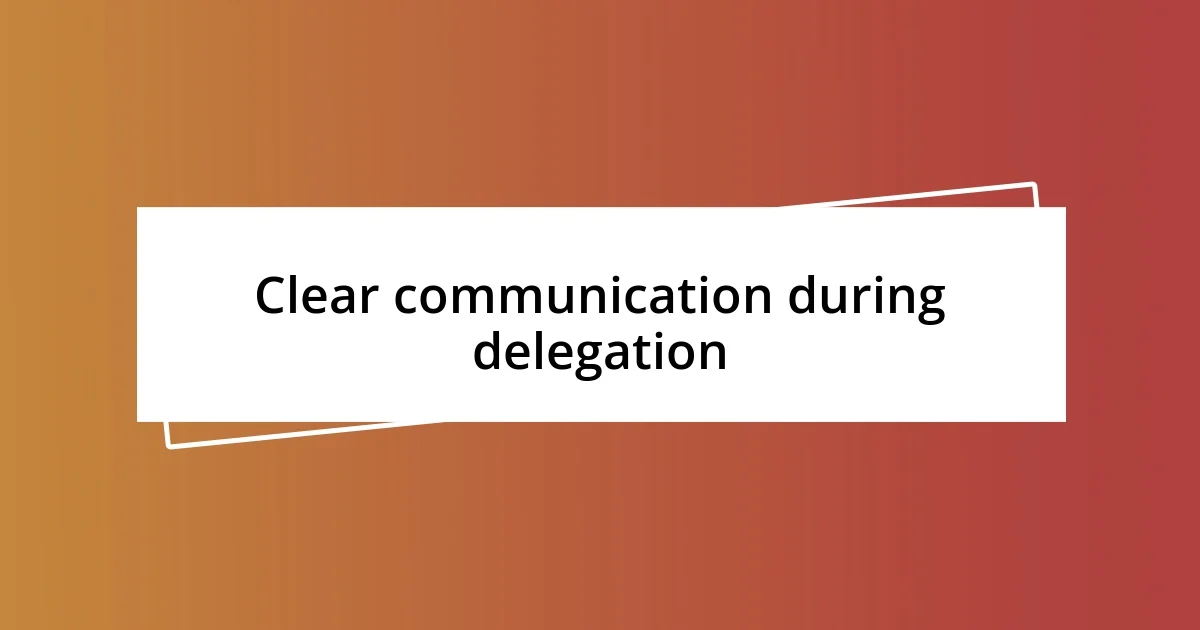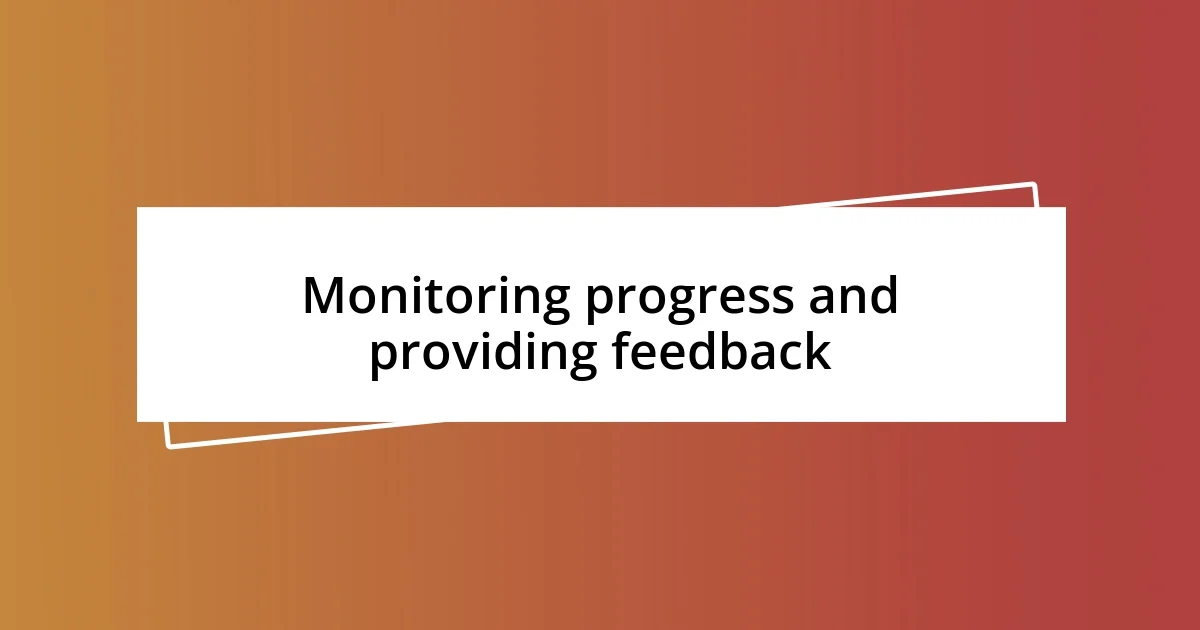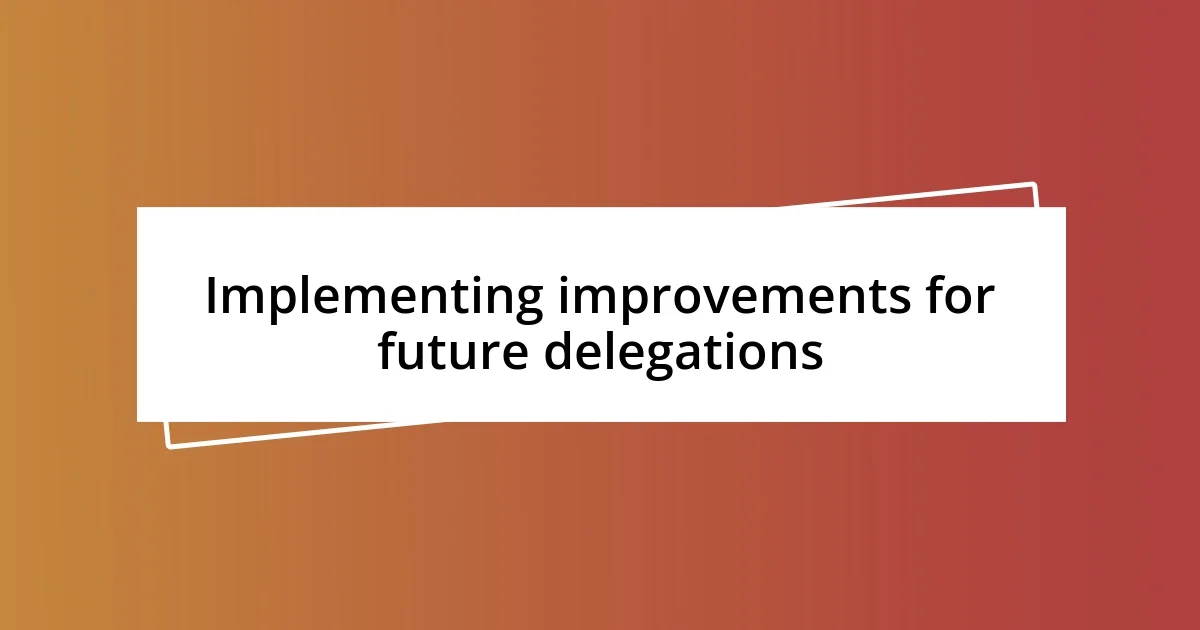Key takeaways:
- Delegating tasks alleviates personal pressure and empowers team members, enhancing their creativity and productivity.
- Clear communication and feedback are essential for successful delegation, fostering trust and collaboration within the team.
- Learning from delegation experiences can lead to improved leadership practices, creating a culture of growth and shared ownership in the team.

Understanding task delegation benefits
One of the most striking benefits of delegating tasks is the profound sense of relief it brings. I remember a time when I tried to juggle everything myself at work; the pressure was immense, and I felt like I was constantly on the edge of burnout. When I finally mustered the courage to hand off some responsibilities, I experienced a weight lifting off my shoulders. Isn’t it funny how sharing the load can make a huge difference in your mental well-being?
Another important aspect of delegation is empowering those around you. I once assigned a project to a junior team member who surprised me with their creativity and efficiency. I realized that by trusting them, not only did I free up my time, but I also allowed someone else to shine. Have you ever witnessed someone exceed your expectations simply because you gave them the chance?
Furthermore, effective delegation fosters a culture of collaboration and growth. When I began to delegate consistently, I noticed a remarkable shift in my team. They started taking ownership of their work, leading to increased morale and productivity. Could it be that by stepping back, we not only enhance our own performance but elevate those around us as well?

Identifying tasks to delegate
Identifying tasks to delegate can be a transformative experience in both personal and professional settings. I often find that listing my daily responsibilities is a helpful first step. By breaking down my tasks, I can easily spot what doesn’t require my direct involvement. I remember when I started this process; it was eye-opening to see how many items were just lingering on my plate. Here are a few types of tasks I typically consider delegating:
- Routine administrative tasks that don’t need my specific oversight.
- Projects that align more closely with someone else’s skills or interests.
- Tasks that can serve as growth opportunities for team members.
- Research or data compilation that can be effectively handled by others.
- Follow-ups that don’t require my personal touch.
As I grew more intentional about delegation, I began to notice patterns in which types of tasks drained my energy and which ones I truly enjoyed. I realized that not everything on my to-do list had to bear my signature. For example, once I entrusted my team with certain reports, I was amazed at how they brought fresh perspectives and unique ideas to the process. It’s important to recognize that some tasks may actually enhance others’ skills, so pay attention to the strengths of those around you.
By focusing on these insights and fostering a more collaborative atmosphere, you’ll find it much easier to identify what to delegate. It’s not just about offloading—it’s about growing together and making the work environment more dynamic and engaging.

Choosing the right team members
When it comes to choosing the right team members for delegation, assessing skills and strengths is vital. I once found myself in a situation where I had to select someone to lead a complex project. After reflecting on my team members’ backgrounds and capabilities, it struck me how essential it is to align tasks with individual strengths. It’s not just about filling a role; it’s about finding the perfect fit for each responsibility.
As I navigated my team dynamics, I also learned the importance of trust. In one memorable instance, I hesitated to delegate a critical task to a colleague who had shown potential but lacked experience. Ultimately, I decided to take that leap of faith. The results were astonishing—this individual not only met my expectations but surpassed them, delivering high-quality work that surprised us all. It’s a reminder that giving people a chance can lead to incredible outcomes.
Additionally, I’ve come to appreciate the value of diverse perspectives. During a project, I assembled a team with a mix of experience levels and backgrounds. This blend fostered innovation and creative problem-solving in ways I had never anticipated. When individuals from different walks of life collaborate, the synergy can lead to outstanding results. Choosing team members involves recognizing these dynamics and appreciating the unique contributions each person can make.
| Criteria | Considerations |
|---|---|
| Skills and Strengths | Align tasks with individuals’ capabilities. |
| Trust and Faith | Believe in team members’ potential to exceed expectations. |
| Diversity | Foster a mix of backgrounds for innovative solutions. |

Clear communication during delegation
Clear communication during delegation
When I think about clear communication in delegation, it reminds me of a time when I was tasked with handing off an important project to a new team member. I vividly recall the nervous energy in the room as I explained the objectives, timelines, and desired outcomes. It was a moment where I learned that leaving no room for ambiguity is crucial; each detail shared builds confidence in the person taking on the responsibility.
I’ve found that regularly checking in can also help ensure that everyone is on the same page. For example, during one of my projects, we instituted brief daily check-ins to discuss progress and hurdles. This small change resulted in everyone feeling more connected and less overwhelmed, knowing they had support and clarity. I have realized that communication isn’t just a one-time conversation; it’s an ongoing dialogue that fosters trust and understanding.
Have you ever experienced a breakdown in communication? I know I have, and it taught me the importance of feedback loops. When expectations are clearly set, discussing progress becomes easier and more collaborative. I now prioritize creating an environment where questions are not only welcomed but encouraged, allowing for adjustments as needed. In my experience, this approach not only empowers team members but also enhances the overall quality of the work we produce together.

Monitoring progress and providing feedback
Monitoring progress is a crucial element of delegation that I’ve learned to embrace wholeheartedly. I remember working on a project where I set up a tracking system for everyone’s tasks. Initially, I felt a bit uneasy about this. Would it come across as micromanaging? However, what I discovered was that having visibility into each person’s progress not only alleviated my anxiety but also empowered my team. They felt motivated knowing I was genuinely engaged in their development and success.
Providing feedback is another aspect where my perspective has evolved significantly. Once, after a colleague submitted a report, I was quick to offer critiques that came off a bit harsh. It hit me later that delivering constructive feedback requires a delicate balance. Now, I focus on the “sandwich” method: starting with something positive, followed by areas for improvement, and wrapping it up with encouragement. This technique has transformed the feedback experience, turning it into a productive conversation rather than a one-sided critique.
Have you ever provided feedback and felt it didn’t resonate? I sure have. This taught me that open dialogue is vital for growth. I’ve learned to ask questions that invite my team members to reflect on their work and suggest changes. This not only nurtures a sense of ownership but also fosters a culture of collaboration, turning progress discussions into joint problem-solving sessions rather than mere evaluations. Such moments are the stepping stones to building a cohesive unit that thrives on continuous improvement.

Learning from delegation experiences
I’ve learned that each delegation experience is a classroom in itself, teaching lessons I hadn’t anticipated. For instance, when I handed a critical task to a junior team member, I felt a mix of excitement and apprehension. Watching them tackle the project not only opened my eyes to their capabilities but also showed me that stepping back allows others to shine in ways I never imagined. Isn’t it rewarding when we see potential in others that we might overlook?
Then there were times I faced unexpected challenges after delegating. During one project, I found that what I considered clear instructions weren’t as clear to my colleague, resulting in a misalignment. This taught me to ask more probing questions initially. Now, I actively encourage my team to share their understanding of the tasks assigned. It’s amazing how much clarity you can gain from simply inviting someone to explain back what they’ve understood. Isn’t it surprising how a little dialogue can make a difference in outcomes?
Every experience makes me rethink delegation’s role in my leadership style. I once felt giving up control was akin to failure, but I’ve flipped that belief. I’ve come to see delegation as a chance for everyone to grow, including myself. It’s about sharing ownership and creating opportunities for learning. This shift in mindset has not only empowered my team but has also deepened my connection with them. Isn’t it fulfilling to watch a team thrive together as they take on greater challenges?

Implementing improvements for future delegations
Making improvements for future delegations requires conscious reflection on past experiences. I recall one time where I overlooked the importance of regularly checking in with my team, which led to misunderstandings and missed deadlines. After that, I made it a point to schedule brief, weekly catch-ups. What a difference it made! Not only did it keep everyone aligned but it also fostered an environment of openness where team members felt comfortable sharing challenges.
I learned that establishing clear expectations from the outset is a game changer. In a recent project, I didn’t specify the desired outcomes well enough, leading to confusion. Now, I always take the time to outline deliverables and timelines in detail, often drafting a shared document that everyone can reference. It’s fascinating how this simple step can transform the entire delegation process, reducing ambiguity and making each member feel more empowered in their role.
Feedback also plays a pivotal role in refining future delegations. Reflecting on an instance where a team member struggled with an assigned task, I realized that I hadn’t provided enough context for them to succeed. This experience prompted me to implement a feedback loop, where we regularly review challenges and successes together. I find it rewarding to witness not only individual growth but also an evolution in our team dynamic, as we shift from merely completing tasks to engaging in a shared learning journey. Isn’t it amazing how focusing on collective improvement can elevate everyone’s performance?











